A Comprehensive Guide to the CRM Selection Process
Navigate the complexities of CRM selection and uncover key insights into the CRM selection process, from evaluating features to aligning with needs.
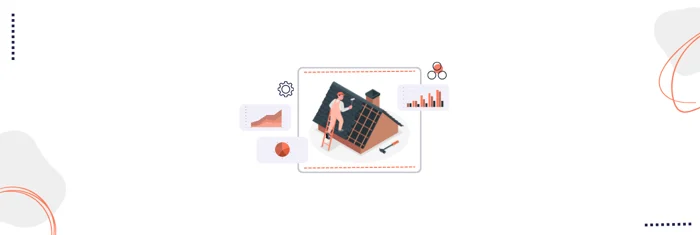
Explore the Ultimate Guide to selecting the best CRM for Roofers. Find the perfect CRM for roofers tailored to their unique business needs.
CRM software plays a crucial part in the ever-changing and competitive roofing industry. It helps in organizing leads, facilitating better communication, and guaranteeing customer satisfaction. However, finding the best customer relationship management (CRM) system that is geared toward roofers might be difficult. With several possibilities, each claiming to be the finest, how can you choose one that meets your roofing company's needs?
This all-inclusive guide will lead you safely through the complex web of customer relationship management (CRM) systems. Whether you're a single roofer simplifying operations or a large corporation improving sales and customer service, this guide is designed specifically for roofers to help them make a well-informed decision.
Roofing CRM software becomes a go-to teammate for roofers by helping manage teams, tasks, accounts, and earnings in the roofing hustle. It's like having a project coordinator at your side, preventing oversights and boosting efficiency through smart task automation.
Specialized roofing CRM not only streamlines project details but also builds stronger customer connections. It keeps all customer info in one place, predicts their needs, and supercharges your sales and marketing game with clever lead management and automated follow-ups. It's like having a personal assistant that helps you focus on the most promising leads, saving time and increasing your chances of success. With CRM insights, you're equipped to make savvy decisions by analyzing customer data, sales trends, and project results, ultimately improving your bottom line.
Moreover, it helps your crew stay on the same page by scheduling meetings, sharing project updates, and crafting winning proposals. The result? A more productive team that provides top-notch service, boosting your reputation in the roofing game.
Now that you’ve learned about why Roofers need CRM, let’s take a closer look at the features that most roofers look for in a CRM.
When choosing a CRM solution for the Roofers, prioritize the following:
|
Features Essential in a CRM for Roofers |
Details about the features |
| Lead Management |
Efficiently organize and track potential clients. |
| Customer Contact Information | Store and access detailed customer details for effective communication. |
| Job Scheduling | Efficiently schedule and manage roofing projects for optimal timelines. |
| Billing and Invoicing | Streamline the billing and invoicing process for financial transparency. |
| Inventory and Materials Management | Keep track of materials and manage inventory effectively. |
| Project Tracking | Monitor the progress of roofing projects in real-time for timely adjustments. |
| Communication Logs | Record and review all interactions for transparent communication. |
| Reporting and Analytics | Generate insights through comprehensive reporting and analytics. |
| Mobile Accessibility | Access CRM functions on the go through mobile devices for flexibility. |
| Customer Relationship History | Track and understand the history of customer interactions for personalized service. |
| Task Management & Automation | Organize and assign tasks efficiently within the team for streamlined workflows. |
| Email Integration | Seamlessly integrate and manage email communication for unified correspondence. |
| Calendar and Appointment Management | Schedule and manage appointments and deadlines for effective planning. |
| Payment Processing | Facilitate secure and efficient payment transactions for convenience. |
| Marketing and Communication Tools | Tools for targeted marketing and communication for enhanced outreach. |
| User Access Control and Security Features | Ensure secure data access through user permissions. |
| Quick Quote Generation | Rapidly generate accurate project quotes for timely responses. |
| Crew and Equipment Tracking | Monitor the location and status of crews and equipment for efficient deployment. |
| Weather Forecast Integration | Stay informed with real-time weather updates for strategic project planning. |
| Lead Source Tracking | Identify and analyze the sources of leads for informed marketing strategies. |
| Service Request Management | Effectively manage and respond to service requests for customer satisfaction. |
| Job Costing | Analyze and track the costs associated with each roofing job for financial clarity. |
| Service History Tracking | Maintain a comprehensive history of service interactions for continuity. |
| Mapping and GPS Integration | Utilize mapping and GPS tools for location-based insights and navigation. |
| Field Service Management | Streamline on-site operations for field service teams for improved efficiency. |
| Vendor Management | Manage relationships and interactions with suppliers and vendors for reliable partnerships. |
| Digital Signature Capture | Securely capture digital signatures for approvals and agreements. |
| Customer Surveys | Gather feedback through surveys for continuous improvement and client satisfaction. |
| Photo and Video Uploads | Easily upload and share visual project updates for enhanced communication. |
| Social Media Integration | Integrate social media for enhanced marketing and customer engagement. |
| Lead Scoring and Qualification | Evaluate and prioritize leads based on predefined criteria for targeted efforts. |
Choosing the appropriate CRM for your roofing business is a pivotal decision that can greatly influence your client relationships and overall operational efficiency. To ensure a well-informed decision, take into account the following essential factors when selecting a CRM specifically designed for your roofing business:
Roofing firms need a CRM tailored to their needs, encompassing project management, lead tracking, and roofing supplies inventory. The ideal CRM for this industry incorporates specialized functions like project management, cost estimation, and contract administration.
Select a CRM that grows with your roofing business, ensuring scalability for an expanding workforce, growing customer base, and increased data volume. Opt for a solution with adaptable plans that can evolve alongside your company's growth.
One of the major aspects that need to be taken into consideration while choosing the right CRM is its ecosystem which includes the Implementation Partners and Agencies, Individual Consultants, and User-base.
A good CRM needs implementation partners, power users, and a wide community to ensure best practices and experiences are inculcated during setup and ongoing maintenance. A very niche CRM, even with exceptional features, can cause implementation failure due to a very limited ecosystem.
Seamless integration with accounting, email marketing, and project management tools is crucial for a CRM's optimal operation in the roofing industry especially when certain features are not native and need external integrations. This minimizes data duplication and enhances overall company processes. Therefore, it is important to consider the CRM integration capabilities.
A widely adopted CRM must be user-friendly, especially for field employees, ensuring easy navigation and reducing training time. An intuitive interface encourages consistent utilization, minimizing errors among roofing experts.
A customizable CRM is essential for roofing companies with diverse operations, allowing adaptation to specific needs through changes in data fields, report creation, and dashboard customization. This adaptability enhances decision-making quality and overall effectiveness.
When dealing with technological challenges, having access to reliable customer support is essential. Efficient and well-informed support can expeditiously rectify issues, thereby guaranteeing minimal interruptions to business activities. For issue resolution, consider efficient CRM with proactive customizable solutions.
For every company, costs must be carefully considered. Carefully assess the whole cost of the CRM, including both the initial investment and the monthly subscription payments. Find the most value for your money by comparing prices and features. Finding an appropriate balance between the CRM's cost and its capacity to fulfill the roofing business' needs is essential.
We have selected the best CRM software for your Roofing Business based on the above-discussed factors and features:
HubSpot is an easy-to-use CRM offering marketing, sales, and customer service. It serves as an excellent medium for roofers with data-driven insights to manage their tasks ensuring optimized impact. HubSpot’s scalability, its features, and one of the best eco-systems in the industry allow roofing firms of any size to leverage it to improve operational efficiency, customer retention, and revenue growth.
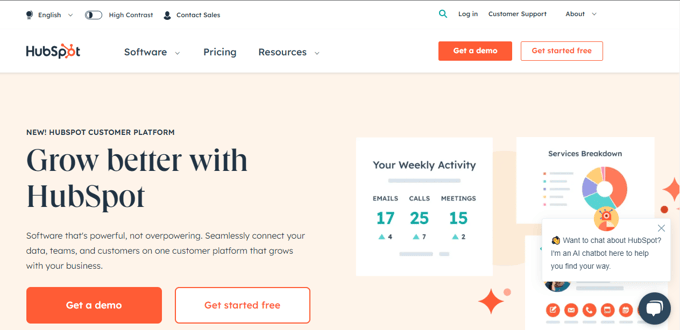
Credits: HubSpot
HubSpot Pros:
User-friendly Interface: HubSpot offers a user-friendly interface, which is crucial for roofing professionals, including field employees, ensuring easy navigation and quick adoption.
All-in-One Solution: HubSpot provides an all-in-one solution, streamlining various aspects of roofing CRM, from project management to lead tracking, predictive lead scoring, and task management.
Integration Capabilities: HubSpot's integration capabilities are beneficial for seamless collaboration with accounting programs, inventory and ERP platforms, and other tools and applications like Salesforce and QuickBooks commonly used in the roofing industry.
Scalability: HubSpot's scalability is advantageous for roofing companies experiencing growth, allowing the CRM to adapt to an expanding workforce, customer base, and data volume.
Cost: HubSpot pricing can be a concern, as it may involve expenses that may not align with the budget constraints of some small roofing companies.
Limited Built-In Features for Roofers: While HubSpot has very extensive features for various teams and now its customization options are also quite established, some features like job scheduling and inventory management are not built-in features and roofers either need to choose some integrated tool or they need custom objects options to build those options from scratch.
Pipedrive is a popular sales tool among companies of all kinds. It's most well-known for its pipeline visualization capabilities, which provide a bird's-eye view of the sales process. Pipedrive is a useful tool for roofing firms because it helps roofers manage their sales more efficiently. This also leads to more closed transactions as well as greater revenue.
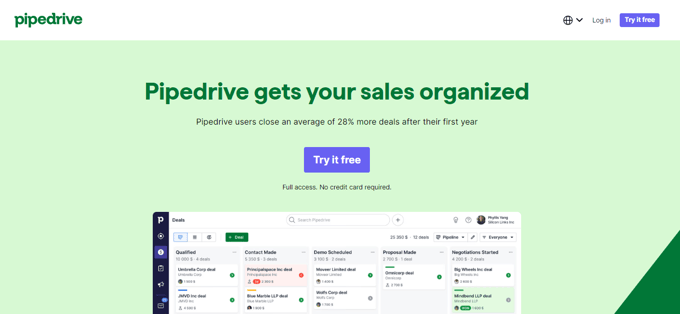
Credits: Pipedrive
Affordable Subscription Packages: Pipedrive offers affordable subscription packages, catering to the budget considerations of roofing companies, making it a cost-effective CRM solution.
Sales Pipeline: The visual sales pipeline feature in Pipedrive is beneficial for roofers, providing a clear and organized view of the sales process, which can be particularly useful for managing leads and projects.
Limited Customization: Despite API access, Pipedrive has some limitations in customization. Roofers may find certain aspects like job scheduling, inventory, and field service management of the CRM less adaptable to specific needs.
No Free Plans: The absence of free plans may be a drawback for smaller roofing businesses or those with budget constraints, as they may prefer a no-cost entry-level option.
Mobile Accessibility for Expensive Plans: While Pipedrive offers mobile accessibility, it may be limited to more expensive plans. This could be a consideration for roofing companies relying heavily on mobile usage for field operations.
iRoofing is a revolutionary solution that fundamentally transforms the methods by which roofers strategize, budget, and implement roofing projects. This cutting-edge software equips roofers with precise remote measuring and visualization capabilities for producing detailed roof designs. It is distinguished by its aerial measurement capabilities and AI-powered roof visualizer.
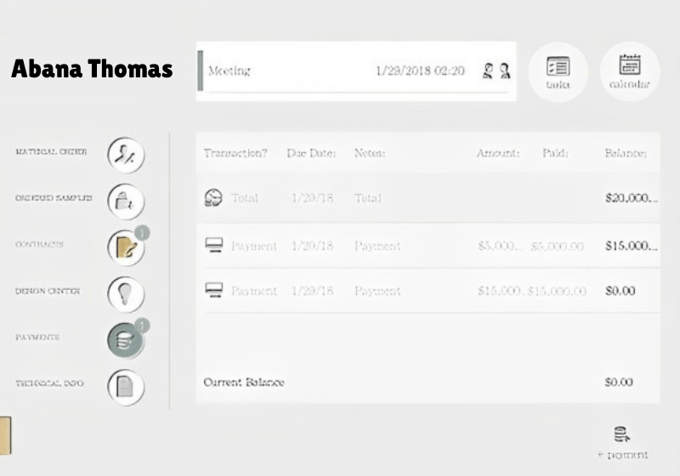
Mobile-Friendly: iRoofing is designed to be mobile-friendly, catering to the needs of field employees in the roofing industry who require on-the-go access to CRM tools.
Roof Visualizer: The roof visualizer feature is particularly beneficial for roofers, allowing them to create visual representations of roofing projects, and aiding in client communication and project planning.
Material Database: iRoofing includes a material database, streamlining the process of managing and tracking roofing supplies for more efficient inventory management.
GPS: The GPS feature in iRoofing is advantageous for roofing professionals on-site, helping with navigation and location-based tasks during projects.
Limited Integration: iRoofing may have limitations in terms of integration with other software or platforms, potentially hindering seamless collaboration with external tools commonly used in the roofing industry.
Fewer Features: iRoofing may offer fewer features compared to more comprehensive CRM solutions, potentially limiting its functionality for roofers seeking a broader range of capabilities in marketing, lead tracking, and other aspects of their business.
Limited Eco-system: As a niche CRM, implementation partners, and the overall community are quite limited for iRoofing.
Job Nimbus is an astounding roofer CRM software since it was built by roofing specialists. Roofing companies can leverage it to handle leads, close more deals, keep track of projects, and invoice clients more efficiently. As a roofing industry-specific platform, Job Nimbus provides robust resources for managing customer relationships and growing your business.
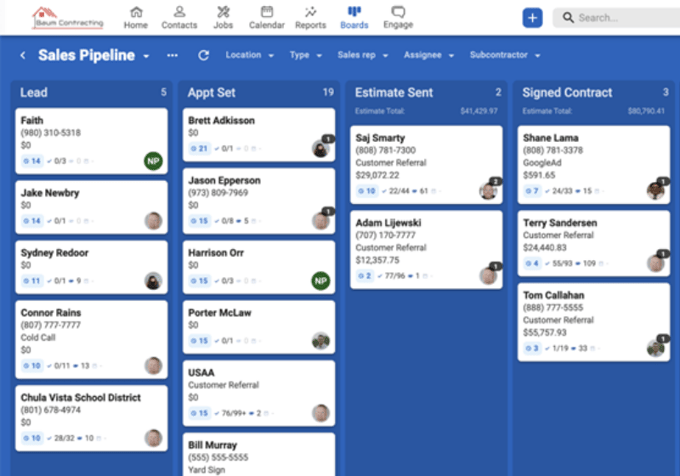
Interactive Boards: Job Nimbus offers interactive boards, providing a visual and organized way for roofers to manage projects and workflows effectively.
Scalability: The scalability of Job Nimbus allows roofing companies to adapt and grow their CRM system as their business expands.
Quickbooks Integration: Integration with QuickBooks streamlines financial processes, enhancing efficiency in managing invoices, expenses, and financial data.
Customization: The customization options in Job Nimbus enable roofers to tailor the CRM to their specific needs, aligning with the unique requirements of the roofing industry.
Less Intuitive Interface: Job Nimbus may have a less intuitive interface, which could impact ease of use, especially for field employees who require straightforward navigation.
Limited Features: While affordable and very Roofing focused, Job Nimbus may have limitations in terms of general features compared to more robust CRM solutions, potentially lacking certain functionalities needed by roofing companies.
Poor App Integrations: Job Nimbus may face challenges in terms of app integrations, potentially limiting its compatibility with other tools and software commonly used in the roofing industry.
Limited Ecosystem: Like iRoofing, Job Nimbus' implementation partners and the support community aren't established making it difficult for established companies to adapt and maintain and reliable CRM instance.
Roofers need Spotio's strong and straightforward field sales enablement technology to optimize door-to-door sales. The platform's mapping and GPS features help roofers find new areas, increasing their sales. It helps contractors streamline operations, expand their clientele, and maximize profits in the competitive roofing industry.
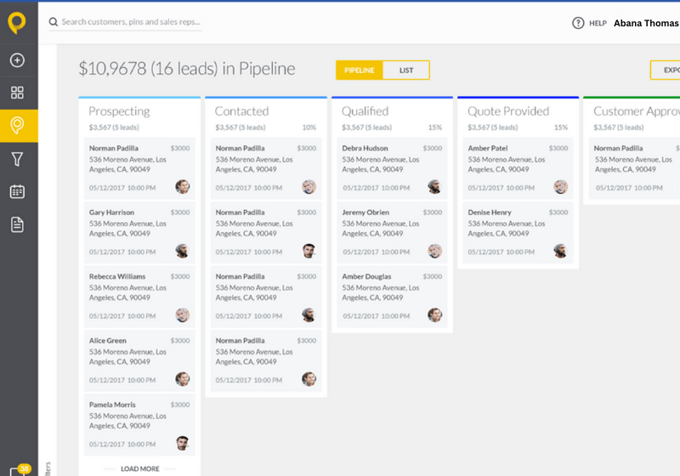
Lead Tracking: Spotio offers robust lead tracking capabilities, allowing roofers to efficiently manage and monitor potential clients in the field.
Route Planning: The route planning feature in Spotio is beneficial for optimizing travel routes, and saving time and fuel costs for field employees.
Competitor Analysis: Spotio provides tools for competitor analysis, helping roofing companies stay informed about market trends and competitors in their service areas.
Enhanced Field Visibility: Spotio enhances field visibility, allowing roofing professionals to have a clear and organized view of their territories, customers, and leads.
Limited Functionality: While Spotio is quite focused on field service management, its features are not focused on Roofing and Spotio do have limitations in several important functionality, potentially impacting the overall operations.
Dependency Challenges: Spotio might face challenges in terms of dependencies on other systems or platforms, potentially affecting the seamless integration of data with other tools used by roofing companies.
A good roofing CRM can boost the productivity of your team and improve customer experience. With a wide array of all-in-one CRM platforms available, businesses have the opportunity to select the one that best suits their needs. Capitalizing on the appropriate roofing CRM is the initial step toward business expansion. Roofers can ensure sound decision-making by participating in activities like consulting with industry peers, exploring reviews, and leveraging free trials.
.png?format=webp&width=400&height=250&name=CRM%20Selection%20Process%20(8).png)
Navigate the complexities of CRM selection and uncover key insights into the CRM selection process, from evaluating features to aligning with needs.

Discover the power of CRM for manufacturing with our ultimate guide. Navigate through key expert insights to choose the best CRM for manufacturing...
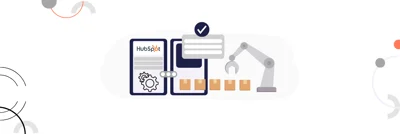
Discover how HubSpot for manufacturing firms can supercharge your ROI. Explore real-world examples and limitations for manufacturing firms using...